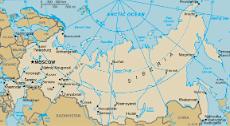The Russian government may not yet describe itself as a superpower, but its latest military exercise, "Stability 2008," clearly aims to affirm Russia's global military reach. The exercise's hypothetical scenario posited a local conflict (e.g., over Georgia) that escalates into a world war, pitting Russia and its ally, Belarus, in a conflict with the West in which both sides employ land, air, maritime, and eventually nuclear forces. All three components of Russia's strategic nuclear deterrent (bombers, submarines, and land forces) participated in the maneuvers, which were the largest conducted on Russian territory since the collapse of the Soviet Union in 1991. One Russian commentary on the month-long exercise, which began on Sept. 21, described it as an opportunity for Russia to "prove its Major League status."
Although the Georgia War has brought the issue to the forefront, Russia's military activities expanded well before this summer's conflict. For several years, Russia's Strategic Missile Forces (SMF) have engaged in an enlarged testing program of the country's land-based intercontinental ballistic missiles (ICBMs). The launches aim both to confirm existing missiles' reliability, and to develop new missile and warhead technologies. In August, for instance, the SMF test-launched Russia's main intercontinental ballistic missile, the RS-12M Topol ICBM (NATO codenamed SS-25 Sickle), with a new warhead designed to overcome U.S. missile defenses. Spokesperson Alexander Vovk declared, "An experimental warhead hit a target at a testing range on the Kamchatka peninsula with high precision, demonstrating its capability to deliver pinpoint strikes on well-defended targets."
In addition to its ICBM deterrent, Russia has been reinvigorating its air-based deterrent recently as well. Since last year, Russian strategic bombers have resumed global patrols, simulating nuclear attacks against the United States and its allies.

